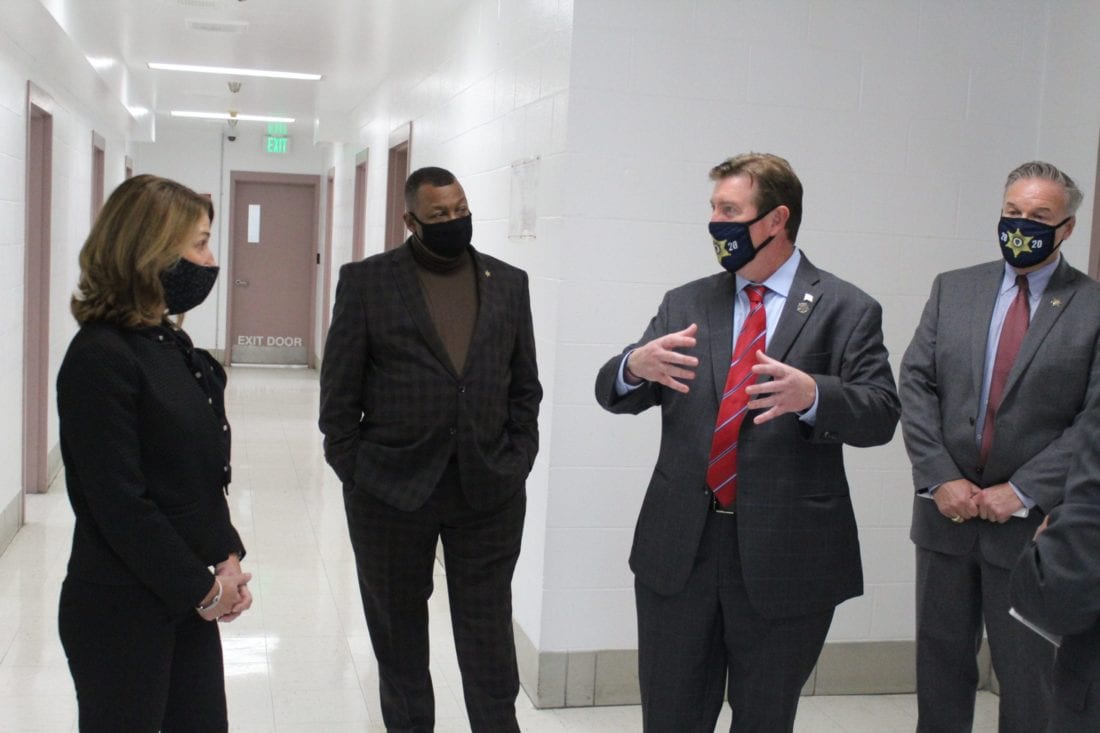Lieutenant Governor Karyn Polito, Suffolk County Sheriff Steven Tompkins, Norfolk County Sheriff Jerry McDermott, and jail Superintendent Michael Harris. Photo credit: Lenny Rowe.
The Norfolk County jail is in the process of creating a family reunification center for female offenders.
The center will house eight women who have been sentenced, with the goal of providing resources to help them once they leave the facility. Renovations are expected to be complete in 2021.
Norfolk County Sheriff Jerry McDermott says 80 to 90 percent of women incarcerated are mothers.
“We’re just hoping that people realize that a lot of the women who do become incarcerated are there because of what they’ve been through. A lot of them have been abused, a lot of them have been turned onto drugs,” said McDermott. “Oftentimes, they end up committing the crime of prostitution to feed their own drug addiction. They’ve been set on that course by the batterer. That’s why working with domestic violence advocates is important.”
Lieutenant Governor Karyn Polito, co-chair of the Governor’s Sexual Assault and Domestic Violence task force, toured the facility in Dedham. They were joined by Suffolk County Sheriff Steven Tompkins, who oversees a program called Community Re-Entry for Women (CREW).
McDermott says for offenses that require a county facility, a long-term goal is to not have those women incarcerated.
“We believe that most of the moms who are court-involved could be better served in programs that help them with their underlying health issues, such as substance use disorder,” said McDermott. “We would still, for security sake, would have them on an ankle bracelet.”
There are currently 20 women in pre-trial or sentencing in Norfolk County. They’re currently residing at South Bay, where more programs are available.
In addition to job training, the Norfolk facility works with community organizations such as the New England Wildlife Center to help with re-entry.
Executive Director of the Cape Cod branch, Zak Mertz, said people work with veterinarians, teachers, and scientists to learn new skills.
“We take their personal interests, and we make sure they have a springboard so they can pursue these interests, build these skills in way that the outside world is seeing,” said Mertz. “When they come out, they’re not simply someone who has been just released from prison – they are people who have been released successfully, they have already started to reintegrate. They have a place they can turn to vouch for them, and that’s the real magic of this program.”

